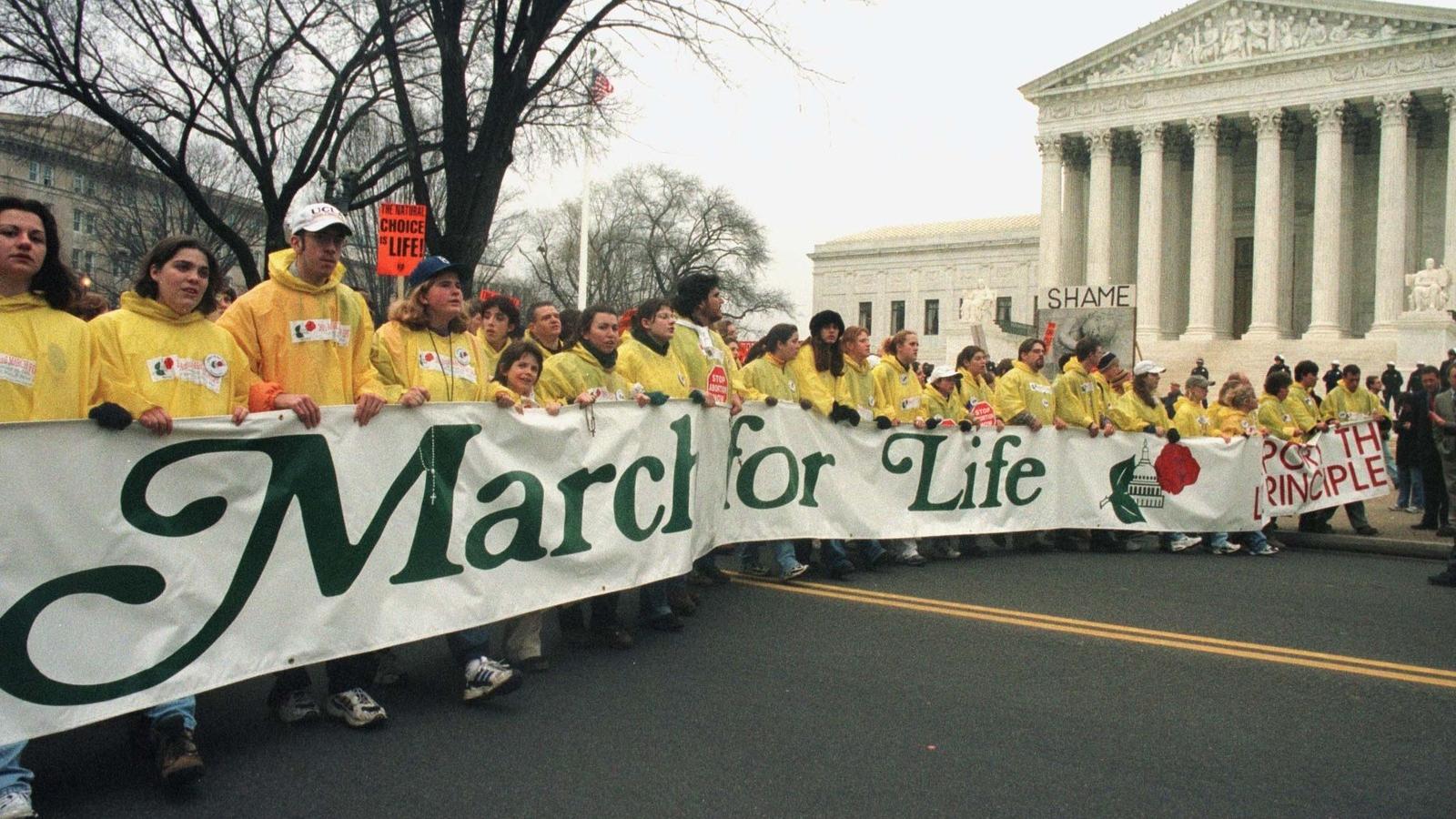H.W. Bush served in the US House of Representatives until 1971 and supported family planning, sponsoring the legislation that funds Planned Parenthood. By the time he ran with Ronald Reagan for vice president in 1988, abortion became a divisive issue and he sided with religious conservatives opposing it. Pictured: Abortion foes march past the Supreme Court, Jan. 22, 1973.
World leaders gathered in Washington, DC, for former President H.W. Bush’s state funeral, hailing him as “America’s last great soldier-statesman” and “distinguished, resolute and brave.”
Republican Sen. Susan Collins of Maine praised his bipartisan efforts earlier this week.
“He didn’t think ‘compromise’ was a dirty word. He thought it was the way you got things done,” she told a Portland, Maine, television station.
Democrats like Nancy Pelosi and former President Barack Obama talked up his dignity and respect, saying he championed issues for all Americans, not just issues that Democrats or Republicans cared about.
Related: H.W. Bush, who presided over the end of the Cold War, dead at 94
Well, here’s one issue the 41st President championed that can definitely be characterized as reaching across the aisle: family planning. Also known as birth control.
“He was so adamant in his support of family planning that he got the nickname ‘Rubbers,’” said Gloria Feldt, who led Planned Parenthood from 1996 to 2005.
And yes, you read right.
George H.W. Bush, who died Saturday at age 94, apparently got the nickname “Rubbers” from his House colleagues for his vocal support for contraceptive access.
In a 1968 speech to the US House, then Rep. Bush said he supported more family planning access in the US and around the world.
“I see no reason why similar programs of education and family-planning assistance — all on a voluntary basis — should not be instituted in the United States on a massive scope,” he said. “It is imperative that we do so: Not only to fight poverty at its roots, not only to cut down on our welfare costs, but also to eliminate the needless suffering of unwanted children and overburdened parents.”
His father, Prescott Bush, was an active supporter of Planned Parenthood in the 1940s — he was even listed as treasurer for one of their early fundraising campaigns.
That left an impression, Feldt said.
“[Bush] was one of the sponsors of the Title X of the Public Health Services Act, which still, to this day, provides the backbone of funding for family planning services for low-income women across the country,” Feldt said.
That Title X money funds Planned Parenthood and it’s the same federal funding that Bush’s son, Jeb, promised to cut when he was running for president in 2016.
While Bush promoted birth control access here in the US, he also championed family planning on a global scale, notably when he was named US Ambassador to the United Nations by Richard Nixon in 1971.
“He in that role really helped push for the creation of a very strong population program, which is where we got created 50 years ago, said Sarah Craven, director of the Washington office of the United Nations Population Fund, or the UNFPA.
Craven says Bush pushed for women’s access to birth control on a global scale because he saw it as a way to help ensure peace and security globally. She says Bush wasn’t the only Republican who supported that view.
“Almost our strongest supporters were moderate Republicans,” she said.
So how did family planning become such a hot-button partisan issue?
Craven says it comes down to one word: abortion.
“In the case of this issue, it has become one where religious conservatives have conflated family planning with also support for abortion,” Craven said.
Bush joined with conservatives opposing abortion when he became Ronald Reagan’s running mate in 1980.
“And I think for political reasons, President Bush made a calculus to withdraw his support for what really had been his family’s DNA,” said Craven.
Related: Trump officials say the UN supports coercive abortion in China. But does it?
And as the GOP moved further to the right on family planning, so did Bush. In 1989, when he took office as president, he withheld funding for the UN Population Fund, the very program he championed two decades earlier. Again, it was over the issue of abortion.
“And this, unfortunately, is where my organization, UNFPA, has been caught in the middle,” Craven said.
That continues with the current administration.
In 2017, President Trump withdrew US support for the Population Fund. UNFPA says it hopes that the United States will reconsider its position.
